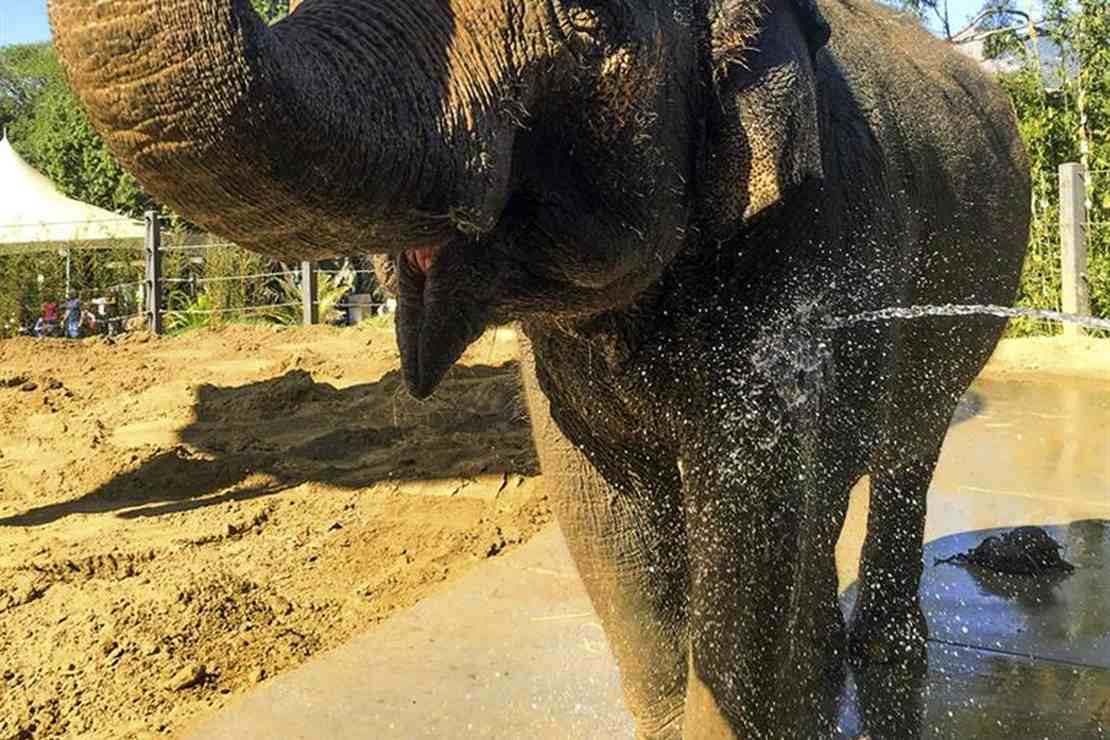
At the Bronx Zoo in New York, there resides a popular pachyderm known as Happy the elephant. She’s been a resident there for quite some time, but a group called the Nonhuman Rights Project has been in a court battle for quite a while now trying to change that. They took the unusual approach of filing a grievance on Happy’s behalf, claiming Habeus Corpus and accusing the zoo of illegally confining her against her will. It was a novel approach, but this week the state Court of Appeals upheld a lower court’s ruling that Happy does not meet the legal definition of being a person and therefore has no standing to make such a claim. So at least for now, Happy will be remaining in the zoo. (Associated Press)
New York’s top court on Tuesday rejected an effort to free Happy the elephant from the Bronx Zoo, ruling in a closely watched case that she does not meet the definition of a “person” who is being illegally confined.
The 5-2 decision by the state Court of Appeals affirms an earlier court decision and means Happy will not be released through a habeas corpus proceeding, which is a way for people to challenge illegal confinement…
The zoo and its supporters warned that a win for advocates at the Nonhuman Rights Project could open the door to more legal actions on behalf of animals, including pets and other species in zoos.
READ RELATED: Tenn. Congressional Candidate Robby Starbuck Wins His Challenge Against State GOP – Will Be Placed Back on August Ballot
The judges didn’t seem uncompassionate toward Happy and noted that elephants “are intelligent beings deserving of proper care and compassion.” But they went on to say that habeas corpus exists to protect the liberty of human beings and does not apply to animals. They also noted that ruling in favor of the plaintiffs would “would have an enormous destabilizing impact on modern society,” saying that it was not their role to make such a decision.
The Nonhuman Rights Project has been chasing this goal for years. They lost a similar case in 2017 involving Tommy the chimpanzee, also a resident of New York State. If anything, Tommy had the stronger case, being an animal much closer to humans on the evolutionary tree. That doesn’t mean that elephants aren’t incredibly smart. They clearly are. They pass almost all the tests measuring self-awareness, including being able to recognize themselves in a mirror. (An ability only definitively proven in humans, apes, and dolphins, besides elephants.)
As I’ve written here before, I am not a fan of zoos and I never visit them. It’s simply too depressing to see the animals penned up in spaces too small to meet their natural needs. And I say this as someone who has a lifelong love of animals, particularly shelter dogs and cats. But our laws exist as human laws governing humans. And I agree that suddenly granting all of the animals the same type of rights would be cripplingly destabilizing for our society.
Also, with elephants being as critically endangered as they are, we should probably keep some of them in secure locations in case they go completely extinct in the wild. We already have people collecting elephant DNA in case we have to reintroduce them to their native lands in the future. But if you want to save the elephants, a more direct method would be to convince the African nations where they reside to allow some significant military patrols to start taking out poachers. As much as I want to see the elephants survive, I wouldn’t object to seeing a few poachers shipped home at room temperature as a lesson to the others.
Source:






